
King Henry I was, in many historians' estimation, an accomplished ruler. He cemented his father, William I's, conquest of the kingdom of England, successfully fought off a series of rebellions across the Channel in Normandy, and burnished England's reputation among the kingdoms of Europe.
Yet, for all his undoubted qualities, Henry made a complete mess of the succession to his throne. And so, when the ageing king died in 1135, England was pitched into civil war.
That conflict is now better known as the Anarchy, a word that conjures images of turbulence and chaos. And so it proved, as the two contenders for Henry's crown - his daughter and nominated heir, Matilda; and Stephen of Blois, a grandson of William the Conqueror - embarked on a bitter battle for power.
In a conflict of seemingly endless twists and turns, it was Stephen who struck first, having himself crowned a matter of weeks after Henry's death. Yet, by 1141, Matilda had turned the tables on her enemy completely. Having defeated Stephen at the battle of Lincoln and thrown him into prison, she entered London in triumph, seemingly on the brink of securing the throne. Yet Londoners wouldn't accept her, and after being freed from his incarceration, Stephen was soon back in the ascendant.
Even then the war rumbled on, as Matilda's supporters - her son Henry to the fore - strained every sinew to unseat Stephen. It was only in 1154, on Stephen's death and Henry's accession as Henry II, that England's long nightmare came to an end.
But what if Matilda hadn't allowed victory to slip through her grasp in 1141? What if she had placed the crown on her head, sat on the throne - and had herself declared England's first queen-regnant?
UNCHANGED SUCCESSION
This story is from the {{IssueName}} edition of {{MagazineName}}.
Start your 7-day Magzter GOLD free trial to access thousands of curated premium stories, and 9,000+ magazines and newspapers.
Already a subscriber ? Sign In
This story is from the {{IssueName}} edition of {{MagazineName}}.
Start your 7-day Magzter GOLD free trial to access thousands of curated premium stories, and 9,000+ magazines and newspapers.
Already a subscriber? Sign In
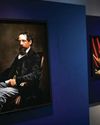
'Dickens's evocation of the fears, excitement and confusion of childhood is peerless'
DR LEE JACKSON ON WHY CHARLES DICKENS REMAINS RELEVANT TODAY
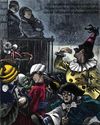
THE AUTHOR GOES ABROAD
Dickens expanded his horizons and boosted his fan-base by venturing overseas - but global fame came with a cost
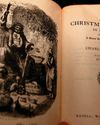
REVIVING THE FESTIVE SPIRIT
A Christmas Carol wasn't just a bestseller - it changed the way that Britons chose to mark the festive season
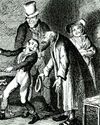
GIVING THE POOR A VOICE
From Hard Times to Oliver Twist, Charles Dickens used his pen to help illuminate the lives of the less fortunate
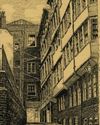
A JOURNEY THROUGH DICKENS'S LONDON
The works of Charles Dickens are synonymous with visions of Victorian London. We talk to Dr Lee Jackson about the author's love of the capital, and the locations that most inspired him
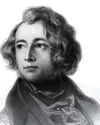
EXCEEDING EXPECTATIONS
Dr Lee Jackson chronicles Charles Dickens's journey from down-at-luck teenager to titan of Victorian literature

GIFTS, TREES & FEASTING
We take a journey through the photo archives to reveal how Christmas and its many traditions have been celebrated over the years - and around the world
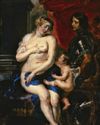
WHAT GREAT PAINTINGS SAY
We explore the story behind an allegorical painting that celebrates the triumph of love over hate, peace over war
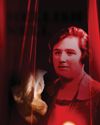
HELLISH NELL
Malcolm Gaskill delves into the life of Helen Duncan - the fraudulent Scottish medium whose ectoplasm-filled seances saw her ending up on the wrong side of the law
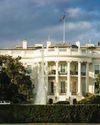
7 THINGS YOU (PROBABLY) DIDN'T KNOW ABOUT THE WHITE HOUSE
Presidential historian Dr Lindsay M Chervinsky reveals some of the most surprising facts about the world-famous US residence